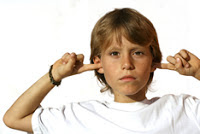Anger-Management "Tools" for Kids on the Autism Spectrum

"Is it common for children with high functioning autism to be highly explosive? My daughter can fly off the handle in a heartbeat for what seems to be rather trivial matters (to me anyway)." Children with High-Functioning Autism (HFA) often have a difficult time controlling their anger as compared to “typical” children, which is due to the fact that they have problems understanding their emotions and their impact on others. In addition, they aren’t living in a void in which they don’t understand that they’re different from other kids. Often teased and rejected by their peers, they can have emerging anger they don’t understand and can’t easily control. Helping these children with anger problems requires direct communication about the effect of their anger on others as well as methods of improving their low self-esteem and poor sense of self-worth, which is often at the root of the youngster’s anger. Anger that’s acted-out badly needs to be treated like any ot





